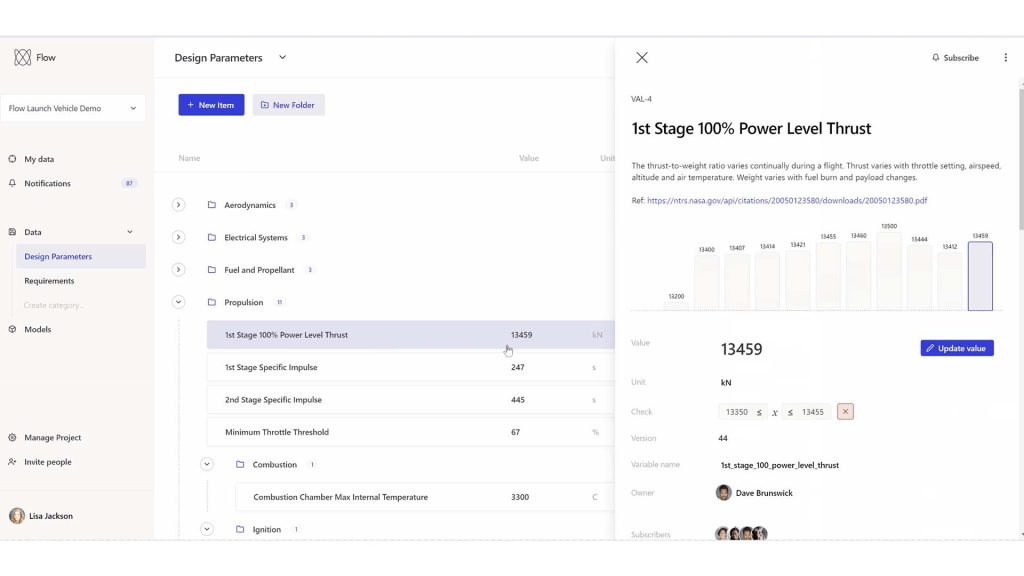Flow Engineering has announced it has raised £7m in seed funding to develop its collaboration platform for hardware engineering teams designing complex systems.
The funding round, led by EQT ventures, saw the participation of some tech investors from companies including Backed VC, Unity, Figma and EF.
“Today, we are going after humanity-defining problems, and hardware engineering teams are the ones working on complex projects like the development of various clean technologies,” said Flow CEO Pari Singh. “I call this group of engineers ‘new age hardware engineering teams’.”
‘New age’ engineering is dependent on the speed of iteration, explained Singh, meaning the faster the iteration process, the quicker engineers are able to learn, test, validate and verify solutions, allowing them to speed up time to market.
The collaboration platform was developed when the Flow team identified a gap in the industry in terms of collaboration tools, which forces engineers to work across a variety of engineering models from CAD to Excel to Matlab, making it very hard for them to manage their data.
The Flow team found that 35% of a hardware engineering team’s resource is spent on data administration in activities including sourcing, updating and sharing data over email or in meetings, and believes that time that could be spent innovating to solve some of the world’s biggest problems.
By creating a single source of truth, Flow’s cloud-based platform aims to reduce engineers’ sync time to zero by integrating any model or system changes, helping companies get to market 30-50% faster.
Built by engineers from F1 and aerospace, Flow was created by a team who experiences the frustration of not having access to collaboration tools first-hand: “Engineers know how much time is wasted due to cross-functional collaboration,” said Singh.
“It is slowing down the delivery of technologies that will make our world a better place. Flow exists to help ‘new age’ engineers drastically cut timelines and costs – we want to knock two years off nuclear fusion delivery timelines, enable engineers to put a new electric vehicle on the road 18 months quicker and take 20% off the cost of a carbon reduction project,” he went on.
“This is big business, $200bn [£175bn] is spent on hardware engineering projects every year, and in an era of inflation, global supply chain risk and energy crises, managing these projects efficiently is of increasingly vital importance.”
Flow said its collaboration platform has already been adopted by leading global companies in the automotive and aerospace sectors to manage design parameters and requirements.
“Everywhere you look, modern hardware engineering teams are building the future. The amount of value to be created is vast and the problems to fix are urgent,” said EQT Ventures co-head Alastair Mitchell.
“Software has seen vast investment since the early 2000s, but since around 2010, serious money has been flowing into hardware, industries like electric vehicles, aerospace and medical equipment. I expect to see this continue, with a particular focus on clean technology.”
“In order to capitalise on the market opportunity, modern hardware engineering companies will need to scale faster and come to market as quickly as possible. Those wanting to survive and thrive will need engineering collaboration platforms like Flow’s,” he concluded.






